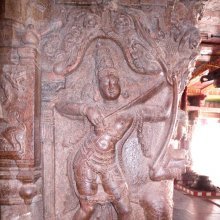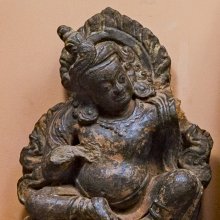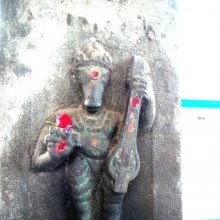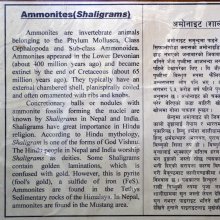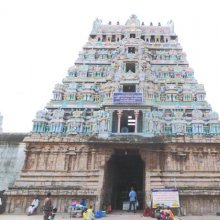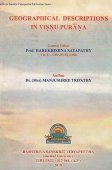Mythology: 1 definition
Introduction:
Mythology means something in the history of ancient India. If you want to know the exact meaning, history, etymology or English translation of this term then check out the descriptions on this page. Add your comment or reference to a book if you want to contribute to this summary article.
Images (photo gallery)
India history and geography
Source: Shodhganga: The saurapurana - a critical study (history)Mythology refers to a system of hereditary stories of ancient origin which were once believed to be true by a particular cultural group and which served to explain why the world is as it is and things happen as they do, to provide a rationale for social customs and observances and to establish the sanctions for the rules by which people conduct their lives.
Mythology, in general, may be described as a historical and scientific study of myths and legends; the whole body of divine, heroic and cosmogonic stories come under its purview. According to H. L. Hariyappa myths and legends are classified as meteorological, physical, historical, ritualistic, artistic, ethical, mystical or allegorical and so on.

The history of India traces the identification of countries, villages, towns and other regions of India, as well as mythology, zoology, royal dynasties, rulers, tribes, local festivities and traditions and regional languages. Ancient India enjoyed religious freedom and encourages the path of Dharma, a concept common to Buddhism, Hinduism, and Jainism.
See also (Relevant definitions)
Full-text (+607): Daitya, Kakadhvaja, Dyutikara, Yaksha, Ahi, Samudramamthana, Durvasa, Wheel Turning King, Kadalanugi, Purana, Mummurti, Aditi, Cinnagiricapa, Orpheus, Raurava, Kadalaliya, Sumeru, Navadurga, Treta, Samudramanthan.
Relevant text
Search found 151 books and stories containing Mythology; (plurals include: Mythologies). You can also click to the full overview containing English textual excerpts. Below are direct links for the most relevant articles:
Lord Jhulelal: An Analytical Study (by Thakkar Harish Gopalji)
Part 24 - Lord Jhulelal, Vedic deity Varuna and other water deities < [Chapter 4 - Analysis]
Part 10 - Research work < [Chapter 3 - Research Methodology]
Part 1 - About Lord Jhulelal < [Chapter 4 - Analysis]
The Myths Of The North American Indians (by Lewis Spence)
Kathasaritsagara (the Ocean of Story) (by Somadeva)
Note on the Aśvins (twin deities of light) < [Notes]
Notes on divine and intelligent horses < [Notes]
The significance of horns in mythology and folk-lore < [Notes]
Lord Hayagriva in Sanskrit Literature (by Anindita Adhikari)
Understanding of Myth and its definition < [Chapter 3]
The horse in Vedic literature (Introduction) < [Chapter 2]
Hayagrīva in the Mahābhārata (Introduction) < [Chapter 3]
Matangalila and Hastyayurveda (study) (by Chandrima Das)
Mythological motifs related to Elephants < [Chapter 4]
Elephants in Śaivism < [Chapter 4]
Elephants in Myths and Metaphors (Introduction) < [Chapter 4]
Vastu-shastra (1): Canons of Architecture (by D. N. Shukla)
(iv.b) Aparājitapṛcchā (Subject-matter and Creation) < [Chapter 5 - Study of Hindu Science of Architecture]
(iv.a) Aparājitapṛcchā (Introduction) < [Chapter 5 - Study of Hindu Science of Architecture]
Related products
